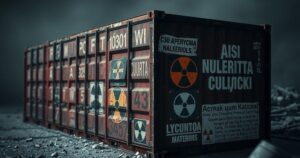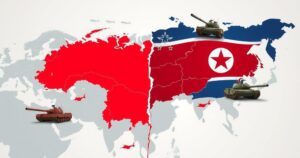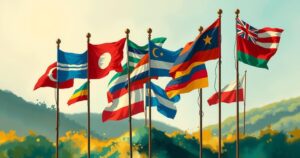DR Congo’s Firm Stand Against M23 Negotiations Amidst Rising Conflict Pressure

The Democratic Republic of Congo is resisting pressure to negotiate directly with the M23 rebel group, focusing instead on diplomatic relations with Rwanda, which it accuses of supporting M23. The conflict has led to significant casualties and displacements, prompting international sanctions against Rwanda and demands for troop withdrawals. Prime Minister Tuluka attributes the conflict’s persistence to Rwanda’s involvement and outlines clear demands for a ceasefire.
The Democratic Republic of Congo (DRC) is steadfastly refusing to engage in direct negotiations with the M23 rebel group, despite increasing international pressure. Prime Minister Judith Suminwa Tuluka highlighted the focus on diplomacy with Rwanda, whom DRC accuses of supporting M23. The ongoing conflict has claimed over 8,500 lives and displaced hundreds of thousands since its escalation in January.
Tuluka described Rwanda as the primary aggressor, referencing a UN report which indicated the presence of Rwandan troops operating alongside M23 rebels. The DRC government’s rejection of direct talks comes after failed peace initiatives, notably those led by Angola, which stagnated last December when Rwanda insisted on DRC engaging with M23.
The M23 group swiftly gained control of major cities such as Goma and Bukavu earlier this year, leading to heightened calls from regional leaders for a ceasefire and the withdrawal of foreign troops from DRC. The Congolese government has declared that Rwanda’s influence is a significant barrier to resolving the conflict.
As international scrutiny increases, including US sanctions against a Rwandan minister, the European Commission has halted defense consultations with Rwanda. The DRC alleges that Rwanda illegally exploits its mineral resources, a claim Rwanda refutes. The UK government has also restricted aid to Rwanda unless it withdraws troops and participates in negotiations.
Rwandan President Paul Kagame acknowledged the deployment of troops but has maintained it is for national security. Conversely, Tuluka dismissed claims of collusion with the Democratic Forces for the Liberation of Rwanda (FDLR) and proposed both withdrawing Rwandan troops and halting violence against Congolese citizens as solutions.
The DRC’s stance against direct negotiations with M23 rebels, amidst accusations of Rwandan military involvement, underscores a complex conflict driven by resource exploitation and regional dynamics. With casualties and displacements rising, the insistence on negotiating with Rwanda highlights the urgency for resolution. The international community’s pressure may influence future actions, but substantial change hinges on the withdrawal of foreign presence.
Original Source: www.bbc.com




